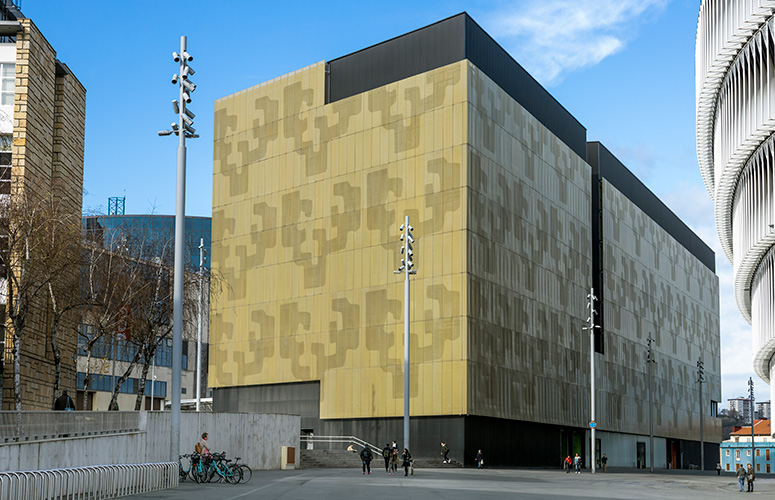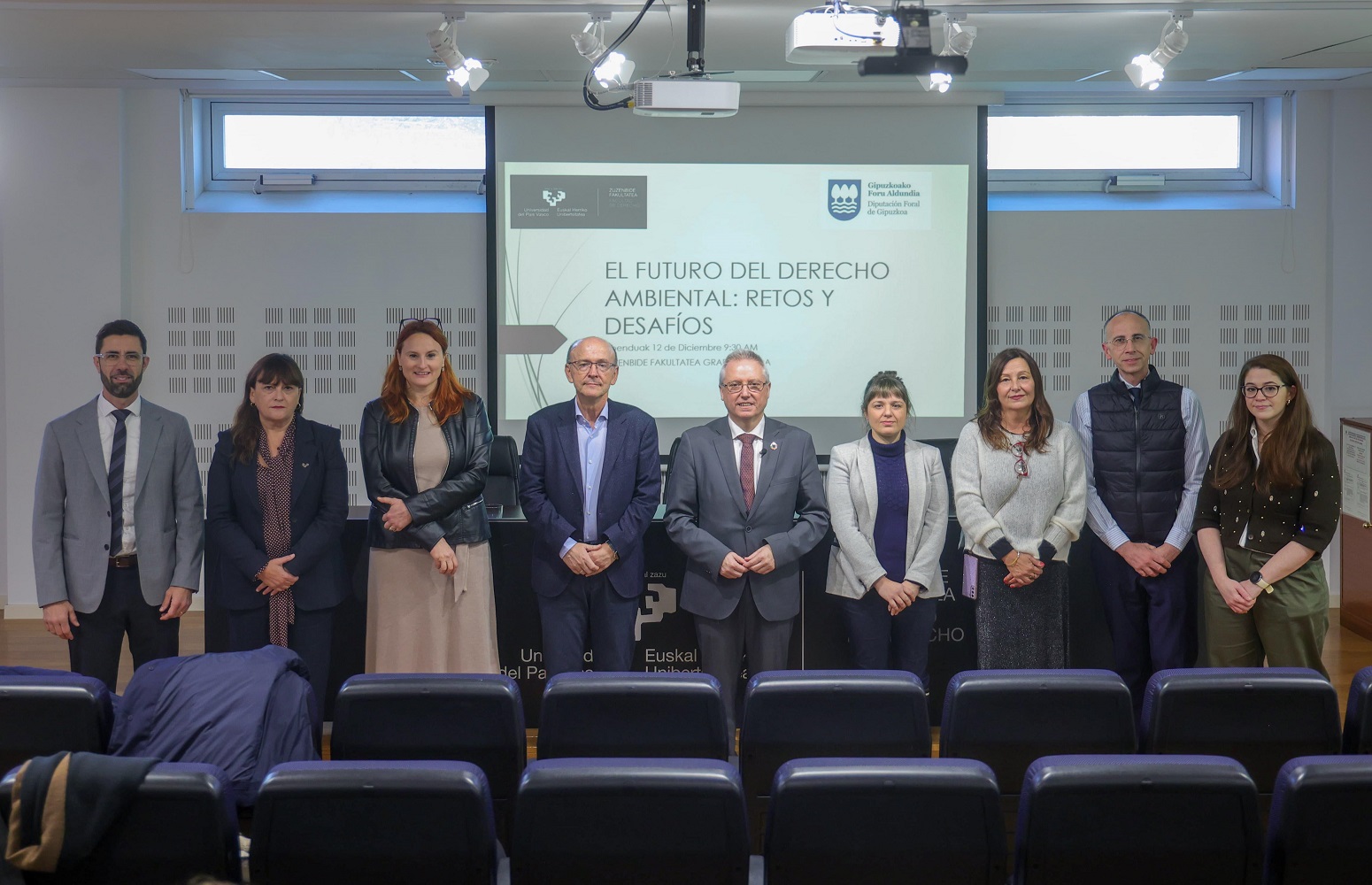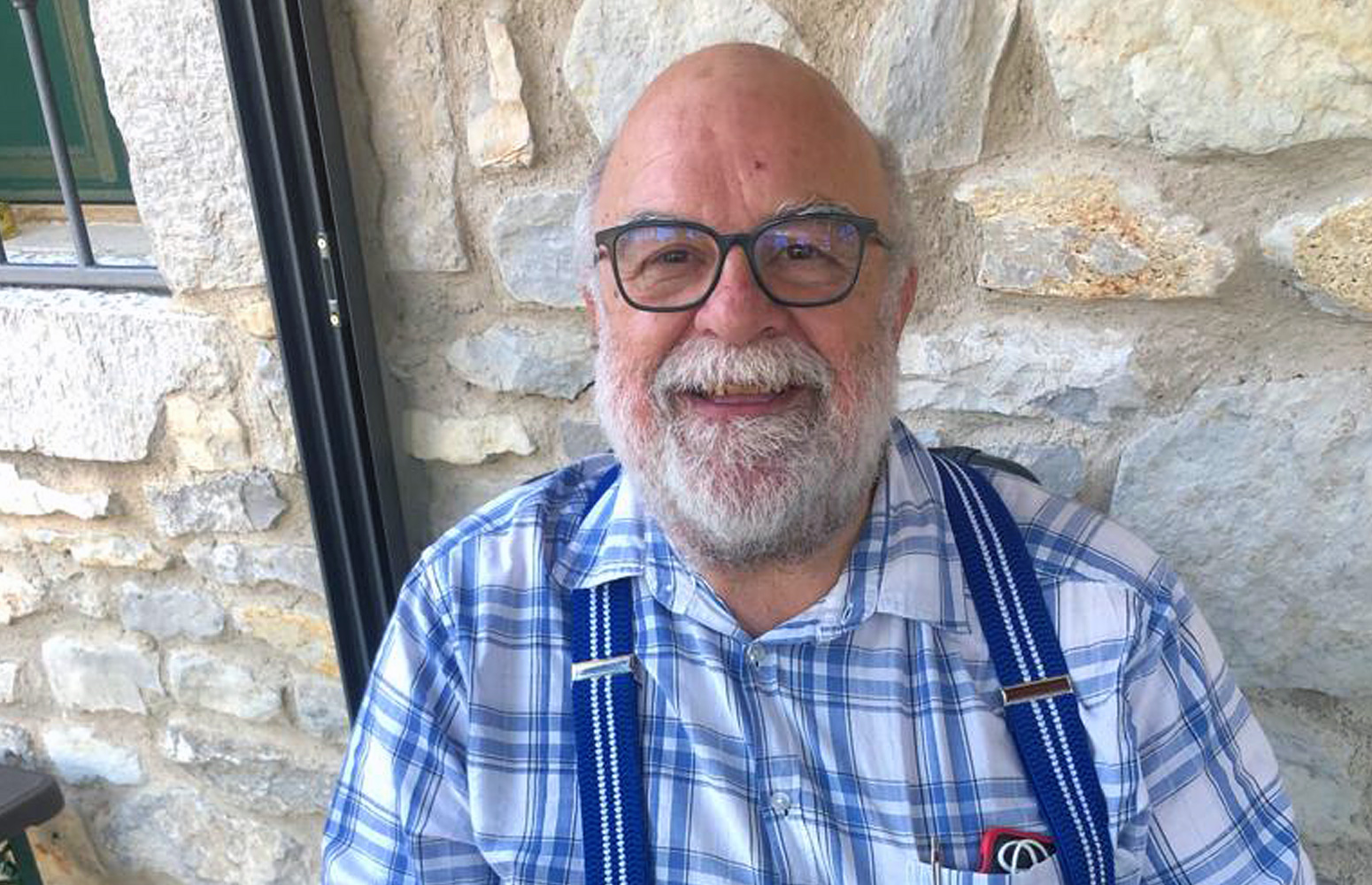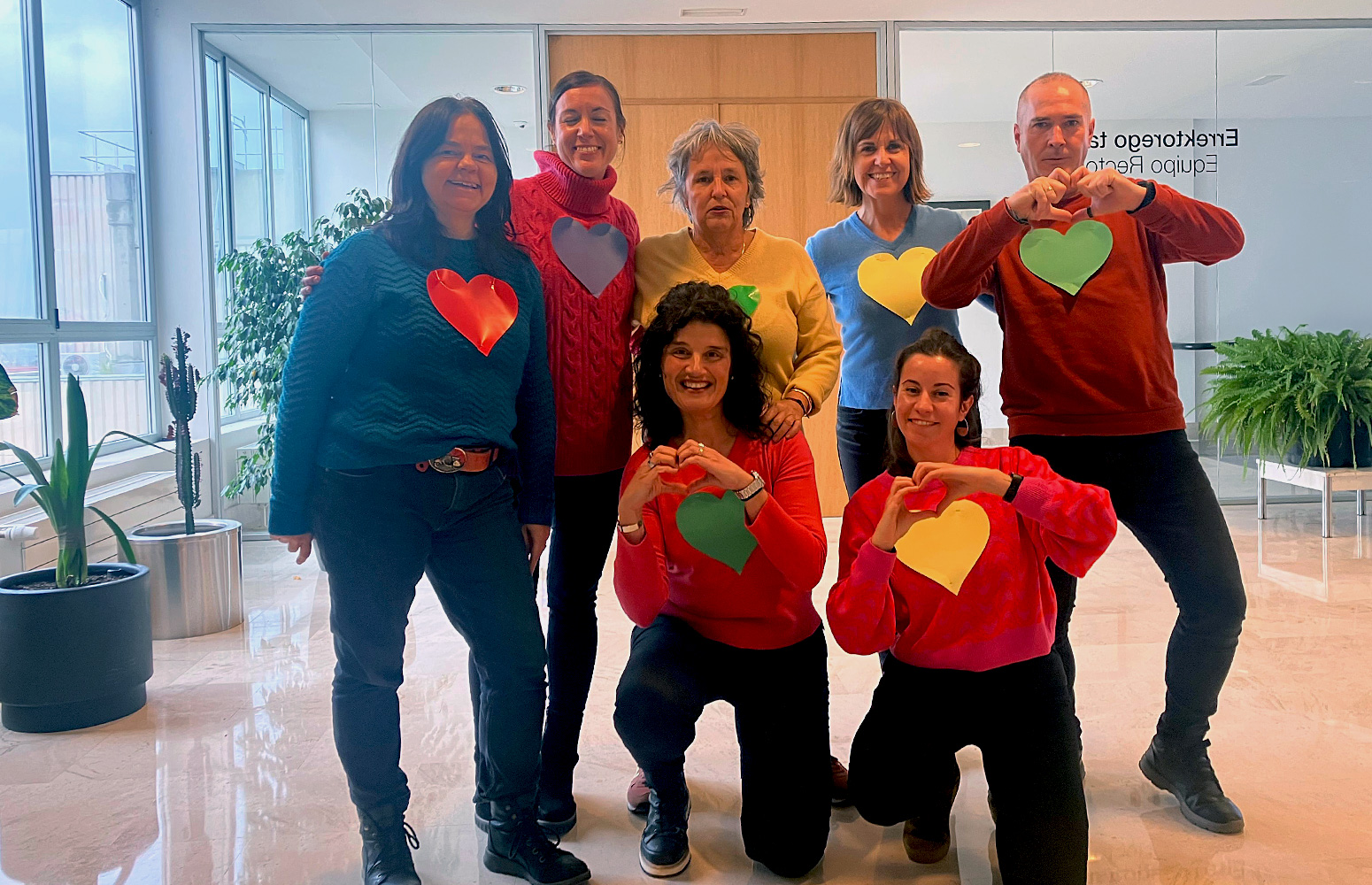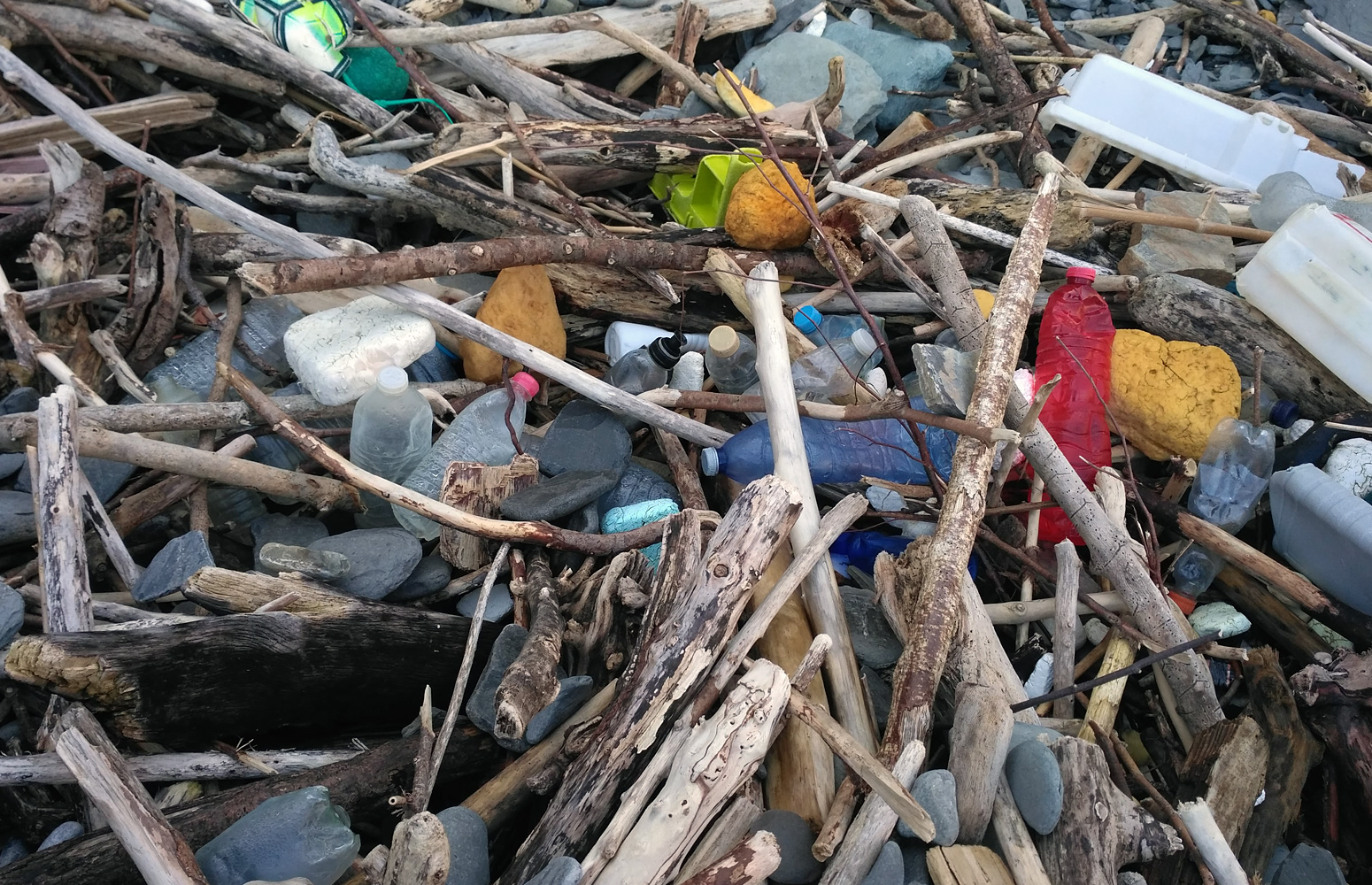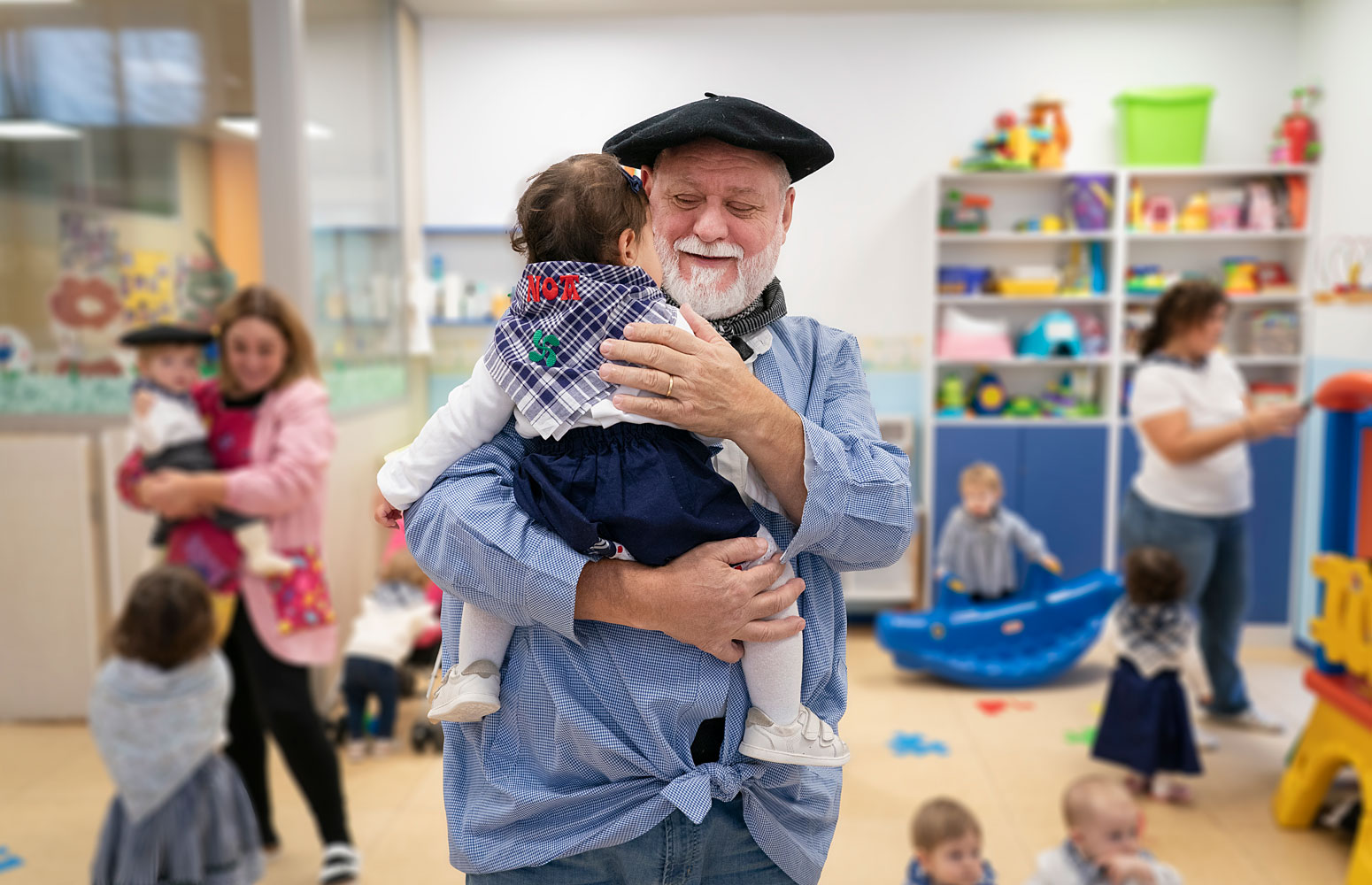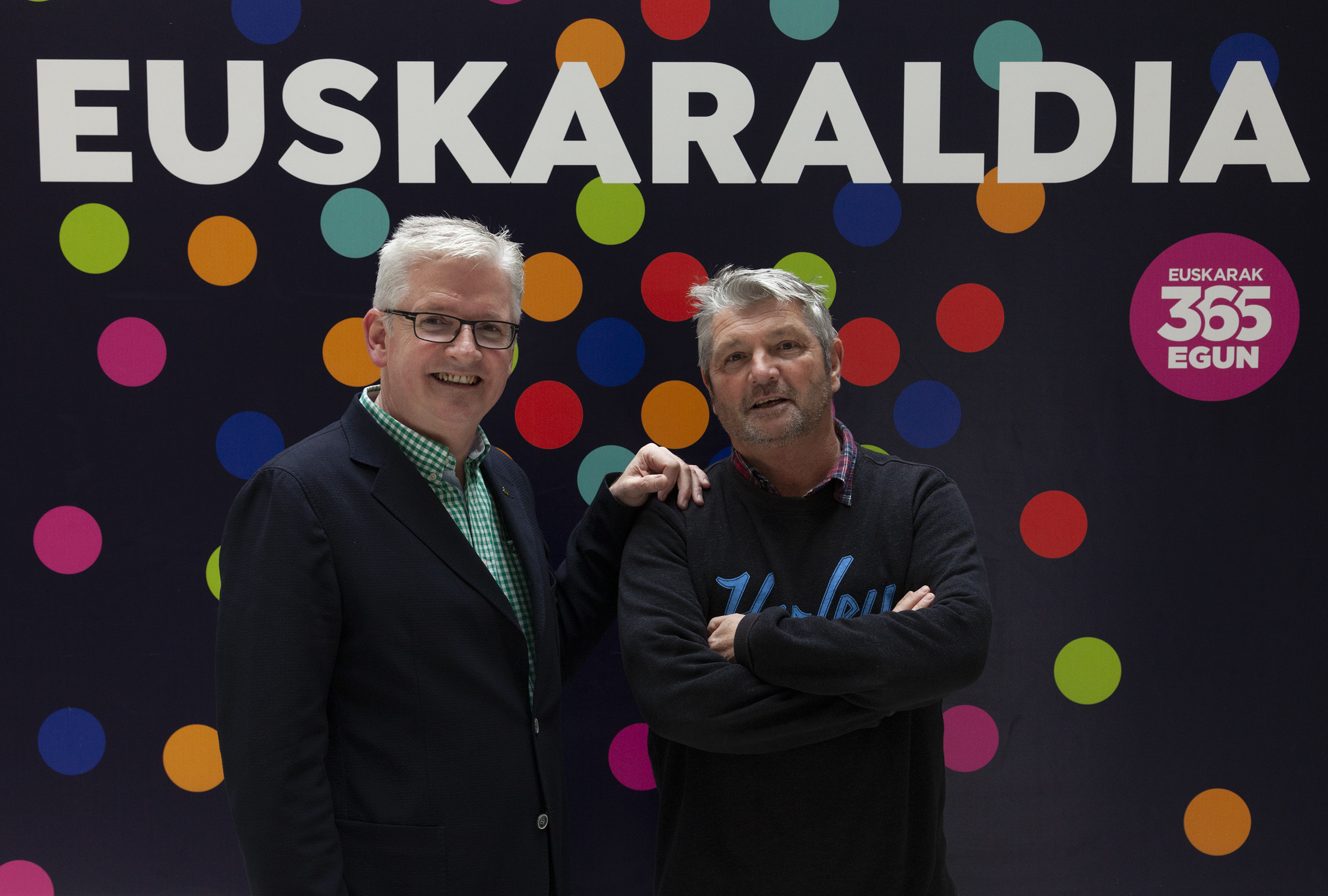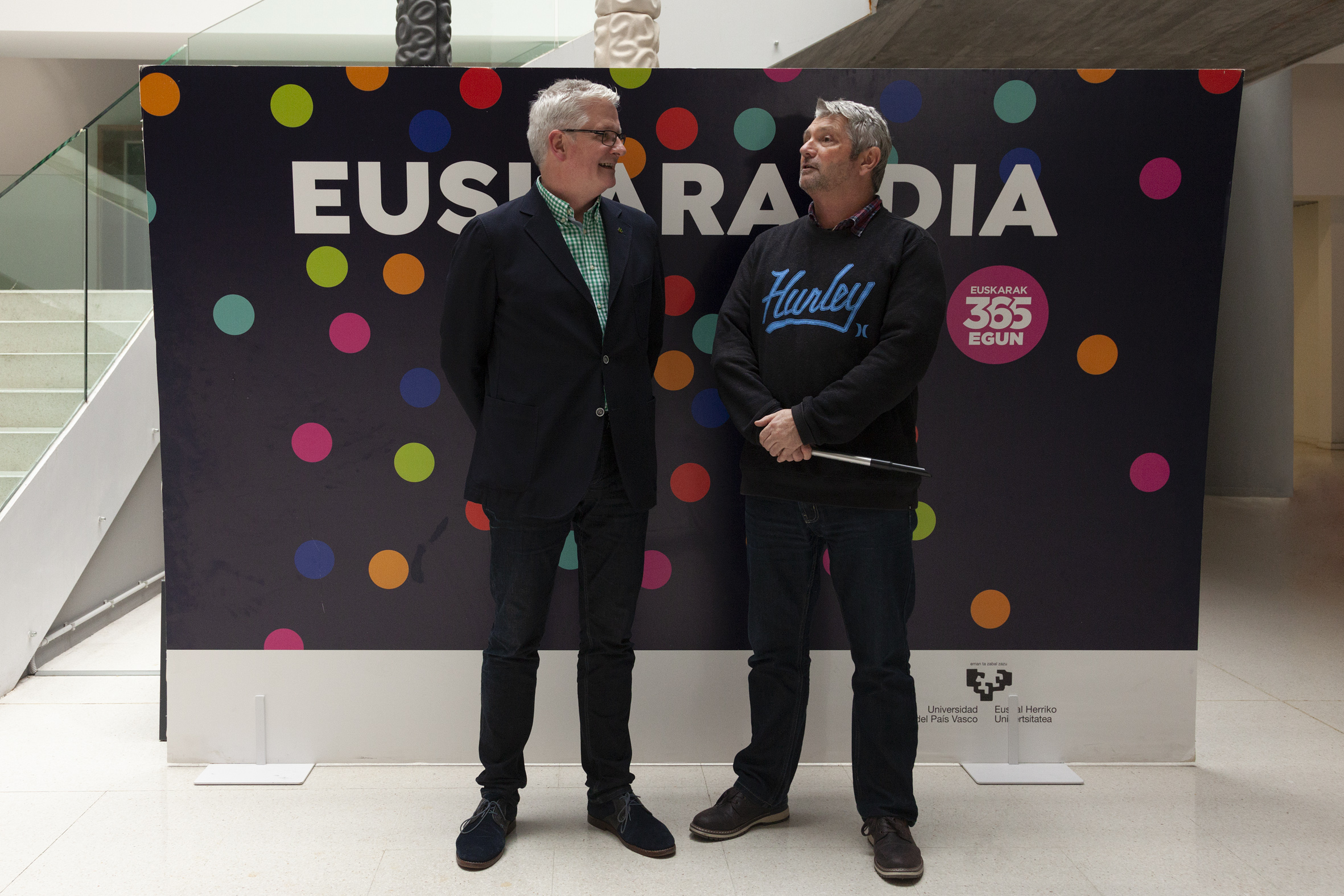«During the language acquisition process, it is vital to be able to laugh when you inevitably put your foot in it!»
David J. Fogarty and Barry Manley are heavily committed to Euskaraldia in the University of the Basque Country (UPV/EHU), in which over 30 activities have been organized in the three university campuses
- Interview
First publication date: 30/11/2018
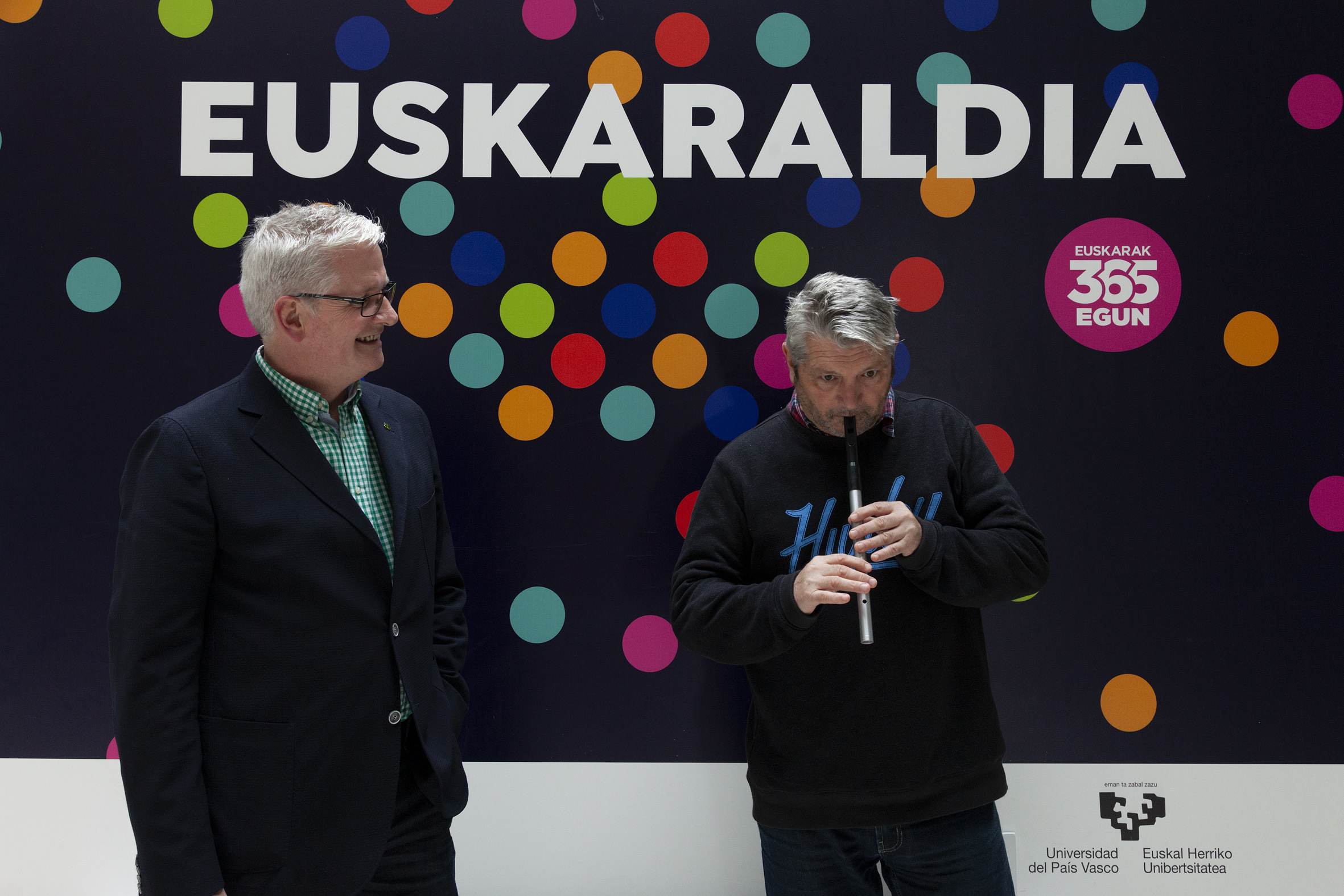
The UPV/EHU has joined up with the Basque Government’s ‘Euskaraldia’ initiative, literally a “Time for the Basque Language”. The aim in the University is to contribute to stimulating the use of the Basque language, “Euskara” in Basque, among the entire university community. It lasts for 11 days from 23 November till 3 December, the “Euskara Day”. To this end, the UPV/EHU has organized more than 30 activities. Among them are those organized by David J. Fogarty, PhD from the UPV/EHU Faculty of Medicine. Of particular note is the monologue by the Irish comedian Barry Manley. He will present a 1 hour show in which he will share his reflections about what learning Basque has been like for him. David J. Fogarty and Barry Manley are two Irishmen (both Corkonians!) who immigrated to the Basque Country more than 20 years ago; they met each other only a few months ago and were delighted to talk about their very different experiences of the adventure of learning the Basque language.
- Why and how did you start learning Basque?
David J. Fogarty: I came here over 25 years ago and started studying Neurosciences at the University of the Basque Country; 5 years ago, I started learning the Basque language Euskara. During my first years, I had sufficient on my plate learning and developing communicative competence in Spanish. However, in recent years I had a great opportunity to learn Euskara. It all began with a friend (a very Basque one!) who gave me a present of a book “Euskara for Dummies”! and I thus began to speak a few words. Subsequently, the then Director of the university Editorial Service encouraged me to take up the Basque language and offered me the opportunity to study this fascinating language.
Thanks to this encouragement of such people who were passionate about their language and to permission to attend classes for 2 hours a day, here we are having this interview! (laughs!)
Barry Manley: My name is Barry. I was born in West Cork. Today I live in Donostia (in the neighboring province of Gipuzkoa) and about 20 years ago I came to live in the Basque Country. Regarding the Basque language, I learned it all by myself; I never went to class or to a summer school. But now I can say I am an “euskaldun”, literally, one who has Basque!
As an “euskaldun” (someone who speaks Basque), my first word is always in Basque, in any situation, for example in the fruit shop beside my house; even though the shopkeeper is from Nicaragua and doesn’t know any Basque, I speak with her in Basque because in this way, I get into the habit of speaking this lovely language. When I’m asked why I began to speak in and learn Euskara, I always say the same: I live in the Basque Country and its language is Basque. I think it’s obligatory to know the language of the place where one lives.
- Did you both find it hard to learn Basque?
D: I don’t think it’s that difficult. The Basque language has very ancient roots, but Euskara Batua, the contemporary standardized Basque is relatively new (it has just turned 50 this year!). And as it’s new, it is very coherent and its words are rich in meaning. In addition to being richly expressive, many Basque words are fascinating to listen to, for example “elkarrekiko erakargarritasuna” (mutual attraction!). The most difficult thing at times is knowing where to place the verb in the sentence and how to order the elements appropriately. But I think that by putting in the hours, both inside and outside the classroom, Basque can be learned as easily as any other language.
B: Because I do monologues, I have to investigate some words, where they come from and this helps me a lot to learn this language. I agree with David, the majority of Basque words are rich in meaning. For example, “emankorra” (literally “tendency to give”, i.e. fertile) or “eskuzabala” (literally open-handed or generous) or “maiteminduta” (literally wounded by love, or fallen in love). In my shows, I use puns a lot, playing with the origin and significance of words. But no, I don’t think it is specially complicated to learn Basque.
- Barry, you are a comedian, but how did you begin in this world of entertainment and what made you dare to do it in Euskara?
B: I am a creator; I’m a writer and 21 years ago, I published my book “New Europeans”. This was my path; I was going to be a writer. When I was 22, I came to the Basque Country as soon as I finished university, leaving behind the crisis which had crashed in Ireland and I was given the opportunity to be an English teacher in the town of Irun. As time passed, I decided to stay in the Basque Country and thus to learn Basque. Then one day, a friend suggested the opportunity of going to a youth hostel to give a monologue and that was the beginning of my career as a comedian.
- ¿What did you both think the first time you heard Euskara?
D: I couldn’t understand a thing and could find no similarities at all with English, French, Spanish or even the Irish language; I thought it was a very strange, mysterious language indeed!
B: The first time I heard Basque, I thought that the words were very long and the sentences eternal; but it attracted me and I ended up falling in love with the language. Subsequently, I taught myself by watching TV series, reading books and listening to music in Basque.
- Do you think there are the same opportunities to speak Euskara in Bilbao and Donostia?
D: That question reminds me of something that happened 3 years ago (laughs). I was in Bilbao with my Basque teacher (Gori) and we went for a coffee after class. I decided I was going to try to continue speaking in Basque so I said to the waiter “Kafe bat izotzarekin mesedez!” (a coffee with ice, please), to which he responded, “What’s that? A hot chocolate?” (laughing). This is a good example of how few opportunities there are in Bilbao to talk in Basque (and the waiter wasn’t from Nicaragua!). I’m optimistic though that Euskaraldia will help to provide more occasions to speak in Basque.
- Speaking about Euskaraldia, can you mention some of the activities that are going to take place during Euskaraldia?
D: Here in the University, we are organizing a number of activities as part of Euskaraldia. The first is to reserve a corner of the university lunchroom, a place we have called the “Multilingual Txoko”. During Euskaraldia, people who want to practice their Basque (Euskaldun berriak) can go there and practice while having their lunch. When the 11 day Euskaraldia is over, this Txoko will be reserved for those who want to practice their second or third languages (e.g. English, French, Basque, etc.). Thus this activity will not cease when Euskaraldia is over, but will continue throughout the whole academic year. The principal objective of this activity is to stimulate the development of communicative competence in other languages, within the university itself, without having to go further afield.
The second activity of interest is one being developed with the Etxepare Basque Institute. Here, we are developing a social network made up of people learning Basque here in the university (B2/C1 levels) and those studying Basque abroad (A1/A2 levels), in English-speaking universities (such as the University of Cork, in Ireland!). We set up language couples who exchange 2 to 3 sentences a day via WhatsApp. In this way, the person studying Basque outside the Basque Country establishes real contact with a Basque-speaking (euskaldun) person in the University of the Basque Country. This “chat-pal” activity will last for 11 days but after, the language couple can change roles and continue their chats in English and/or Euskara. Thus, as roles are swopped, the student becomes the teacher and the relationship becomes more equilibrated.
The third activity I’d like to mention are the monologues which Barry will be doing. These will be on 22 November in the UPV/EHU in Sarriko and on Tuesday 27th in the Auditorium of the Science and Technology Faculty in the Bizkaia Campus (Leioa). But I think Barry is the best man to explain this.
B: Well first of all, I’d like to thank David again for having given me the opportunity to do my show here in the Basque Country University. I was here the first time a few years back, in front of about 500 students and teachers of Euskara and I have great memories of it.
I have been doing monologues for about 8 years but it is really in the last year or so that I have begun to thoroughly enjoy them. Before, I had to ask the audience if they had understood me or not; today, however, I know by their laughter that they understand me. For me, it is an honor to entertain and I hope to be able to fulfill my objective of making people laugh. I think that with the material I have and with the spectators and the language itself, I have enough to go on. A monologue in Basque by an Irishman! Need more be said? (laughs). Some years ago, I had to do a show near here in Las Arenas. I did the first show at 9 o’clock in the morning in front of 100 people, yes, at 9 am!! That same day, I had to repeat the show 4 or 5 times and it was great crack. I hope that it’s going to be the same fun here in the UPV/EHU.
- Can one be humorous in Basque?
B: Of course! You have to know the Basques well though, if you want to make them laugh. I always say my Basque is not Batua (standard Basque), but rather “Batida” (shaken up!) (laughs).
D: Speaking about humor and laughter, I think it is very important to be able to laugh at yourself during the language acquisition process. It is inevitable to put your foot in it and this is no reason to be shy. Today, many students are shy to speak in another language, be it Basque or English..., and are afraid of putting their foot in it. This sense that they must be able to speak perfectly is perhaps the biggest impediment for Basques who are learning other languages. Put your foot in it and move on; there’s no short cut!
- What do you think about Euskaraldia?
B: I think it is a fabulous idea. But, as I already said, my first word to everyone is always in Basque and for this I don’t personally need Euskaraldia myself. But I do think the society we live in needs it; it is an ideal and perfect opportunity to stimulate use of the language.
D: The current situation of the Basque language is somewhat delicate. Today, English is predominant in most domains of life; music, TV series, Internet of course… We should reflect about what we can do to avoid dominant languages obliterating “minority” languages, which for the many people who speak them are “mother” tongues and thus affectionately charged for them. What can this David do against such a Goliath? It may be a good idea to set up multilingual spaces and activities in our society; after all, different languages can and should learn to live together. This is the objective of our “Multilingual Txoko” here in the University. Thus, I think Euskaraldia is a great initiative in this regard.
B: I’d like to add that for me and both of us, the Basque language is a passion. I would never have imagined that I was going to live here in the Basque Country and on top of it speak in Basque, not to mention doing monologs in this precious language!


